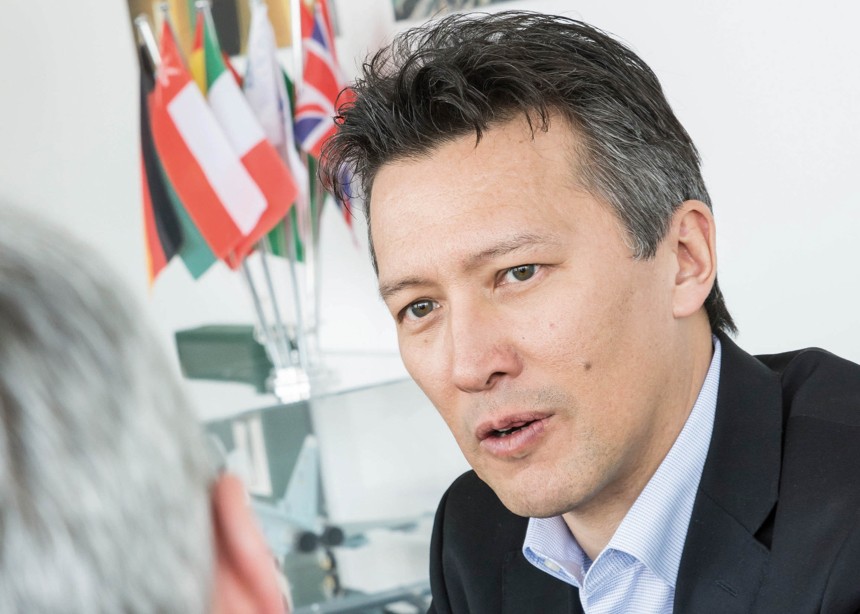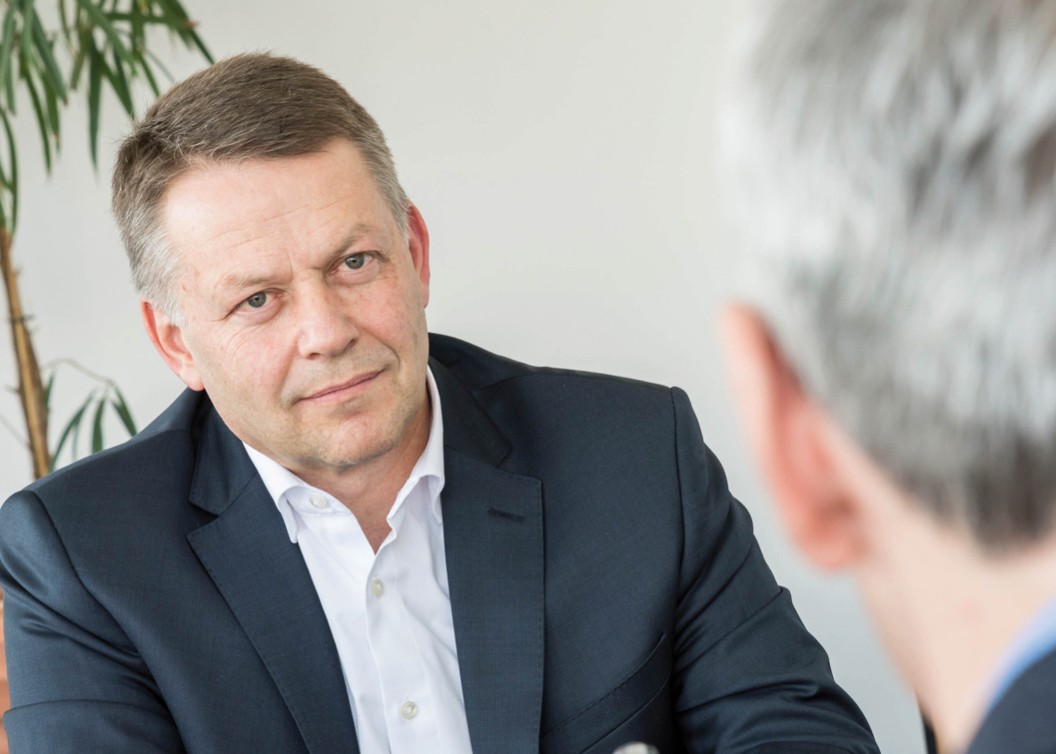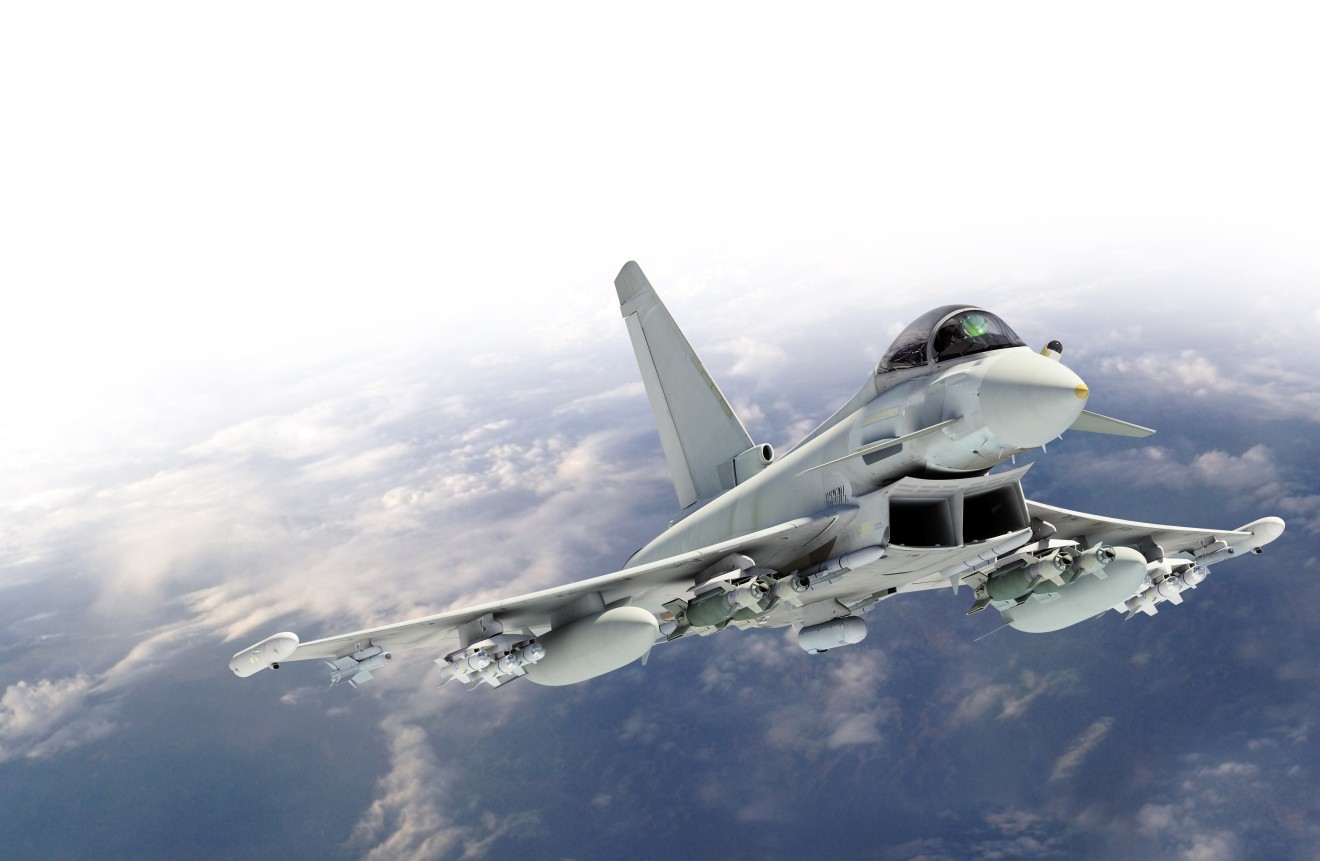What do you honestly believe would be the best solution for Germany – and why?
Dirk: Despite what you see in the Press about the different options the German Ministry of Defence could choose, I strongly believe that the only real solution to answer the twin questions of a Tornado successor and the need to prepare the way for an FCAS — it has to be the Eurofighter.
Eurofighter is already today the backbone of the German Air Force. Squadrons are familiar with the aircraft and therefore there is absolutely no learning curve to be expected compared to integrating any new jet into the system but instead a row of synergies. And clearly, Eurofighter can take over the current role of Tornado. From my point of view there is no better choice.
Through a mid-life upgrade, with new functions built in and further development, Eurofighter would make sure it is a close step to the Future Combat System. And in parallel we could develop a transition. Of course, it’s a competition — it’s not a done deal — and we have to ensure we have a competitive and comprehensive offer.

Volker: If we want to build a strong Europe we should build it with projects not just words. But there are whole host of good logical reasons why Eurofighter should be the choice. It is the stepping stone to a next generation system; it is mission-proven, it supports the EU and NATO and is fully cooperative so can go into international operations, plus it offers low risk capability transfer.
We have established trust, transparency and cooperation between the key stakeholders – the nations, the agencies, the industry. We have synergies and can control costs. We offer autonomy and sovereign capability for Germany and Europe and offer a solution that maintains and sustains a European base. It is the best thing to do, it is the logical thing to do.
Dirk: A key consideration is the future cooperation announced in 2017 by German Chancellor Merkel and French President Macron and for that we need to guarantee sovereignty. A French and German partnership on the next European combat aircraft system would sustain and enhance capabilities in Europe and ensure the homogenisation of the European fleet. This final point is important — ensuring we don’t have too many types of aircraft would help create a whole number of synergies.
How significant is the German decision for Eurofighter?
Dirk: I think this is a crossroads for Eurofighter. If we are successful in competing for the Tornado replacement in Germany this would also be a strong sign for possible future exports — you can be sure that neighbours like Belgium and Switzerland are watching closely what is happening in Germany. It would mark a significant high point. It would mean factories working to capacity and the capabilities required to build fighter aircraft in Europe would be secured. But winning contracts today isn’t simply good news for the intermediate prolongation of the Eurofighter production, it will also help us transition to the Future Combat Aircraft System.
Given that the Luftwaffe already operate Typhoon there must be some advantages to buying more of the same aircraft – can you give any examples?
Dirk: From an economic standpoint the advantages are obvious. It’s good in terms of reduced costs for training, support, maintenance and simulators and by reducing the types and versions of aircraft you also significantly reduce operation costs.
Volker: The German customer already understands the costs and risks associated with Eurofighter. Evolving the Eurofighter’s capability is a relatively low risk option and it represents a good opportunity for industry to develop the innovative skills that will be required for the next generation of aircraft systems. Germany would have the largest fleet on the continent and be able to take advantage of economies of scale in the support of the weapons system. It would also allow Germany to play an even stronger role in the programme in the future.
You claim that Typhoon will deliver the option with the greatest sovereign control for Germany – why is that, and why is sovereign control so important?
Dirk: It should be in the interest of every nation to have control over your defence tools, options and the data. Buying a US solution does not give you access to the data — it comes with black boxes that you wouldn’t have access to and you would not be fully in control. Where and how you use your aircraft would have to be in line with US approval.
In light of a sovereign European defence we believe it is mandatory to have full control of your defence aircraft and decide for which kinds of mission you use them. Taking Eurofighter as a Tornado replacement immediately gives you all those options both as a NATO partner and as an independent air force.
What additional capabilities or sensors will be required to meet the Tornado RFI?
Volker: With the integration of Meteor, Storm Shadow and Brimstone we are already making big steps forward. The Tornado RFI asks us to take on 10 roles from the Tornado and two additional ones in relation to the Future Combat Air System.

I cannot disclose the full configuration standard for confidentiality reasons, however, we will see modifications in a number of areas. These include: the sensors (like the E-Scan radar), the DASS, in the targeting and recce pods and on the HMI side (one option could be the Striker 2 helmet). We will see modifications to the basic aircraft in the aerodynamic area, fuel capacity, RCS and IR reduction, propulsion enhancements and general systems. On the weapons side we will see the integration of enhanced guided bomb units, stand-off weapons, small diameter precision bombs and other German-specific requirements. With the comms we will see enhancement of the MIDS and the Beyond Line Of Sight capability. There are some new requirements among these, but many have already been discussed — though not yet under contract — under the P4E Enhancements.
Will there be any commonality of design between an enhanced Typhoon and the potential future requirement of an FCAS?
Volker: It is an absolutely logical pathway for Europe to go on. Key technologies will be the main discriminator for a 6th Gen aircraft. These include high-speed data management and Artificial Intelligence, sensor fusion, electronic attack, enhanced navigation, comms, high-speed data links, cyber resilience, which will be a significant requirement and low observability. Then there’s self-protection systems and laser and counter-laser technologies.
In principle it is an evolution of what we have done in designing Tornado and then Eurofighter. We’d build up enhancements towards an FCAS and we’d maintain sensitive skills. The European option would significantly reduce certification and qualification effort because we have qualified solutions available that we can transfer to another platform. That’s a big subject that’s often overlooked but we know how it works.
Dirk: A European solution would support and maintain our skills for the production of combat aircraft. Not just for the big three industrial partners but also for the smaller firms that make up the supplier base. And it would give our key suppliers more reasons to maintain their European bases.
We have around 400 small and medium companies supply to Eurofighter. For bigger enterprises like ours we can work through peaks and troughs but for many of the smaller suppliers in the chain it is a question of survival and a cut in production means severe problems.
What are the likely upsides from a European industrial base perspective with a European vs US solution?
The Eurofighter programme has had challenges – is there a sense that the brand is tarnished. Are you battling against an image problem?
Volker: We have a lot to shout about. Eurofighter is the most advanced combat aircraft in the world and it is the biggest fleet in Europe. We should not hide what Europe has been able to produce. We are now evolving the weapons system like every weapons system. Into the future and keeping it relevant in a 6th Gen battle space.
